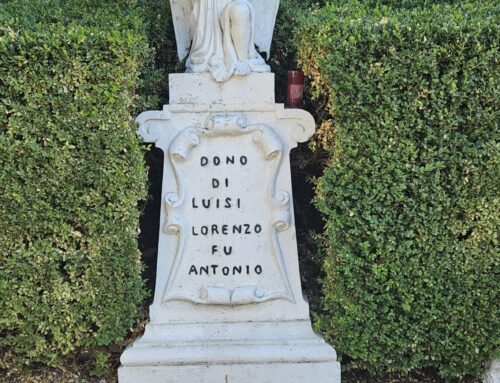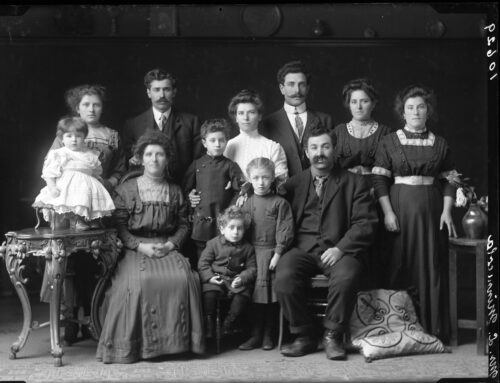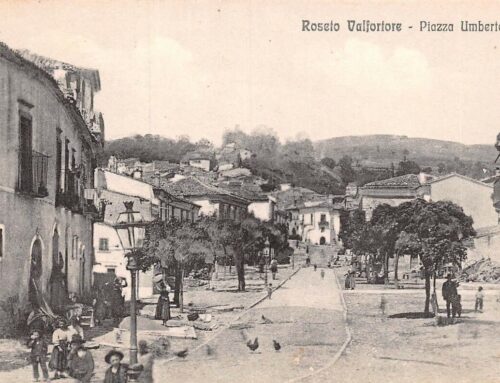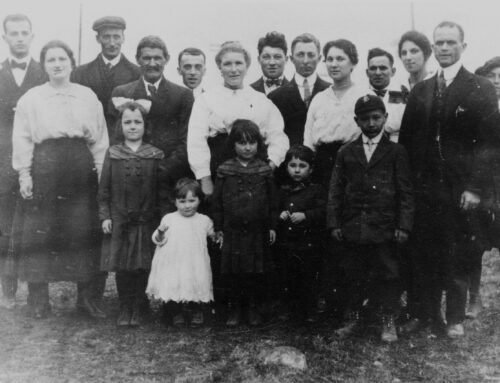What’s in a name? More specifically, what is the origin of the Minicola surname and what does it mean? First of all, the original and correct spelling in Italy was Menecola. All of the original Italian records for my ancestors spell it as Menecola.
For some reason, now lost to history, our surname was misspelled as Minicola after my ancestors immigrated to Canada between 1883 and 1886. The ship’s manifest from 1883 has it spelled correctly as Menecola. The change seems to have occurred after the Minicola family’s arrival in Peterborough, Ontario. The 1888 Peterborough city directory lists the name as ‘Minigold’ while the 1891 census of Canada lists our name as Mencola. It should also be mentioned that my great great grandparents, Lucia and Filippo are listed in the census as not being able to read or write and therefore they would not be able to relay the correct spelling or correct any spelling mistakes.
Up until about 1900 there were many different spellings for Minicola used in the city directories and other official documents. Here are a few I’ve found over the years: Minnicola, Minicola, Minnecola, Minicoli, Minicolo, Minnico, Minacola, Minecola and Minicollo. Although Minicolo and Minnicolo are used intermittently into the 1910’s it seems that from about 1900 on, the spelling generally settles on Minicola or Minicolo/Minicollo.
My theory as to the changing of the spelling is that the language barrier likely caused an official to spell the name phonetically writing it down just as it was sounded out to them. A recent trip to Roseto Valfortore confirmed the correct way Menecola is pronounced there in the Rosetan/Italian dialect and it sounds completely different from the way we pronounce Minicola. Our pronunciation of Minicola has four syllables: Mi-ni-co-la. For the original, proper spelling and pronunciation of Menecola, the two e’s are short as in ‘pet’ or ‘met’ and instead of 4 syllables it’s shortened to two: Mene-culla. It still isn’t clear how they got Minigold or Minicola from Menecola but it’s likely they had to repeat the surname a few times and likely slowed it down to make it easier to understand for the person who was canvassing names for the city directory. It’s also likely this was during the daytime and the younger children would have been at school. The older children and parents Filippo and Lucia would have spoken with a very thick Italian accent and they would have known very little, if any english.
As far as I can tell, everyone that uses the Minicola spelling descended from 2 families that originally settled in the Peterborough, Ontario area in the 1883 – 1900 time frame. The descendants of these families are today mostly centered around Peterborough and Kingston, Ontario with a few families in Hawaii, Nevada, California and Pennsylvania in the United States.
The original, and correct spelling of our surname – Menecola – was retained by later emigrants from Roseto Valfortore. Most of those families settled in and still live in and around Toronto and Mississauga, Ontario and also in the eastern part of the state of Pennsylvania, mainly in Roseto, Bangor, Easton and Philadelphia. Therefore, all of the Minicola and Menecola families originated in Roseto Valfortore, Italy and they would all be related somehow although many of the current descendants would be very distant relations.
As to the origin of the the Menecola surname – according to the Dizionario dei Cognomi e Soprannomi di Cerignola (The Dictionary of Surnames and Nicknames of Cerignola) the origin is as follows:
MENECOLA vezz. f. di Meneco (ipoc. Di Domenico)/ cogn. a Foggia/ cfr. Menica in Lucania [MENECOLA vezzeggiativo femminile di Meneco (ipocoristico Di Domenico)/ cognome a Foggia/ confronta Menica in Lucania]
Translation: MENECOLA – feminine endorsement of Meneco (hypocoristic – i.e. nickname or shortening of ‘Di Domenico’)/ surname in Foggia/ compare to Menica in Lucania

So Menecola is the feminine version of Meneco which is itself a shortening of the surname ‘di Domenico‘ which simply means ‘of Domenico’. The prefix ‘di’ may denote a geographical root of a surname. However, in this case it most likely denotes a patronymic root – i.e. someone descended from a father named Domenico. It should be noted as well that in Italian grammar, nouns are classified according to their grammatical gender. Generally nouns that end with an ‘o’ are masculine and those that end with an ‘a’ are feminine but there are exceptions. So, that’s the story of our Minicola surname.
Postscript: Many family names were so numerous in Roseto that there was a need to easily differentiate between different family lines. A common practice was the use of soprannome which is simply translated to ‘nickname’ although in Italy soprannomi are used to identify certain clans or branches of families. In Roseto Valfortore the soprannome for one of the Menecola family lines was Cicianedde which translated from the Rosetan dialect means little jug or a little water or wine container made from terracotta. It’s pronounced cheech-uh-nedd.




